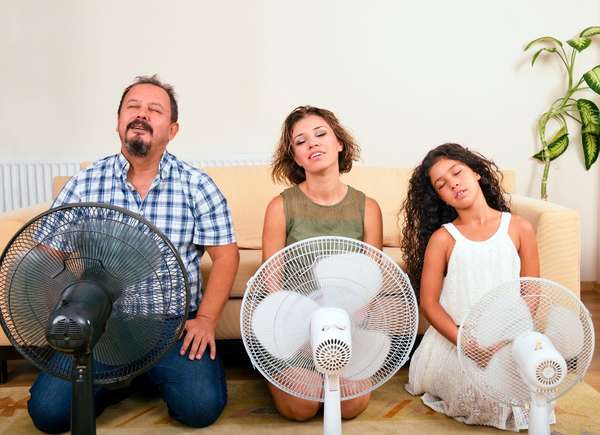

We may earn revenue from the products available on this page and participate in affiliate programs. Learn More ›
When temperatures really rise, summer fun can start to fizzle, especially indoors. It’s a good thing that great minds have figured out ways to help you chill (literally), using items you probably already have on hand. Take a look at these clever ways for keeping comfortable at home, including summertime sleep aids, the right way to work your windows, and even a homemade air conditioner. These simple “aha!” hacks will save you money and keep you cool. If you can’t stand the heat, give one of these tricks a try.
1. Freeze Your Pillow
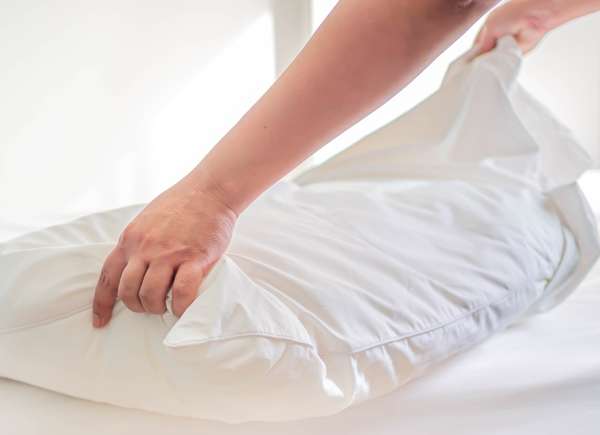
When sky-high temperatures don’t abate at night, the heat can interfere with sleep. One quick remedy is to bunch up your pillow, put it in a plastic bag, and stick it in the freezer for 10 minutes. If your freezer is already full of ice cream, save space by freezing just your pillowcase. The quick freeze creates a temporary cooling effect that may help you doze off. For backup, keep an extra pillowcase in the freezer so you can make a quick switch if you wake up in the middle of the sweltering night. Another pillow pointer: Consider swapping your foam pillow for one filled with buckwheat hulls. The buckwheat stuffing allows air to circulate throughout the pillow, which means it holds less body heat than foam pillows, keeping you cooler.
RELATED: The 13 Best Places to Buy Pillows
2. Make Your Own Air Conditioner
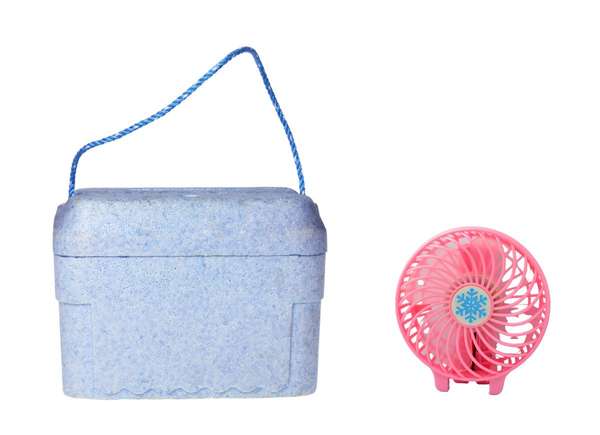
A Styrofoam cooler is good for more than keeping brewskies cold. Transform it into a real cooler by adding two dryer vents and a small fan, essentially creating a DIY AC for less than $10. Carefully trace the circumference of the fan on the center of the cooler’s cover, then trace the dryer vent openings on either side. Cut along the lines, vacuum up any stray bits of foam, and insert the vents and fan (blower side down) into the openings. Next, fill plastic bottles with water, freeze them until solid, and then place them in the cooler. Finally, replace the cover, plug in the fan, and enjoy the breeze.
3. Dip Your Sheets
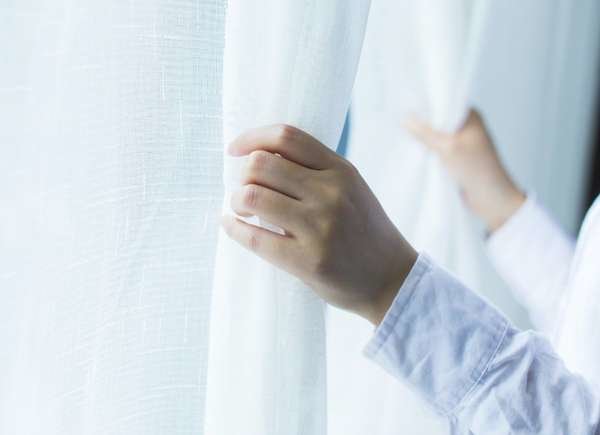
The so-called Egyptian method promises to keep you cool on hot summer nights. Wet a bed sheet or large bath towel with cool water and wring it out or run it through your washer’s spin cycle until it’s damp but not dripping. This will be your new beat-the-heat blanket. Keep a spray bottle filled with water and a small amount of rubbing alcohol at your bedside: If you wake up warm, give the sheet an additional spritz. Another idea in the same vein is to wet and wring out a sheet, then hang it in front of the open window nearest your bed to make any breeze even more delightful.
RELATED: 30 Summer Hacks You Need in Your Life ASAP
4. Chill Beverages in a Snap
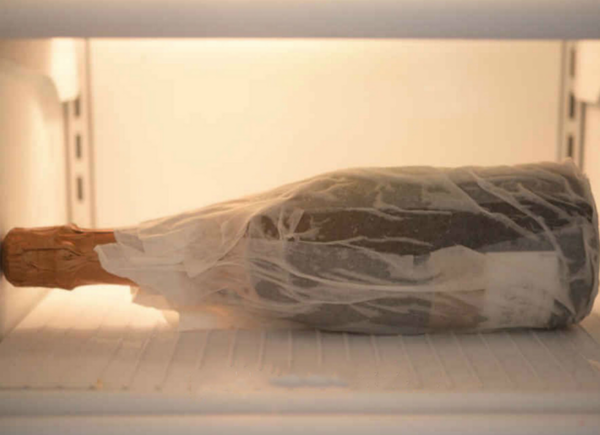
Talk about tragic! That six-pack warmed up by the time you got it home. Quick, run a paper towel under the cold tap, wrap it around a can or bottle, and place it in the freezer. In 15 minutes or less, your drink will be chilled to perfection. Why? Numerous scientists have weighed in, but one easy explanation is that the water on the towel evaporates, drawing heat from the bottle and making it cool faster. For loads of more technical explanations, get your geek on online!
RELATED: The Best Coolers for BBQ’s, Beaches, Camping and More—Tested
5. Run a Fan with the AC On
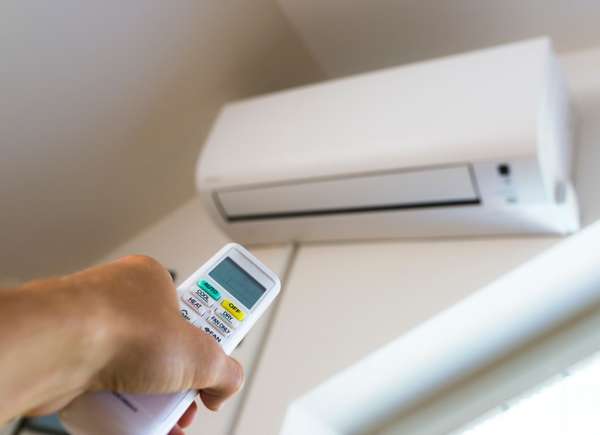
Using a ceiling fan while running the air conditioner can double the cooling effect. The AC lowers the air temperature, and the fan circulates the cool air throughout the room. The boost in air circulation creates a wind chill that allows you to run the AC at a higher temperature while still keeping cool.
RELATED: The 25 Easiest Ways to Save Energy (and Dollars) This Summer
6. Break the Ice
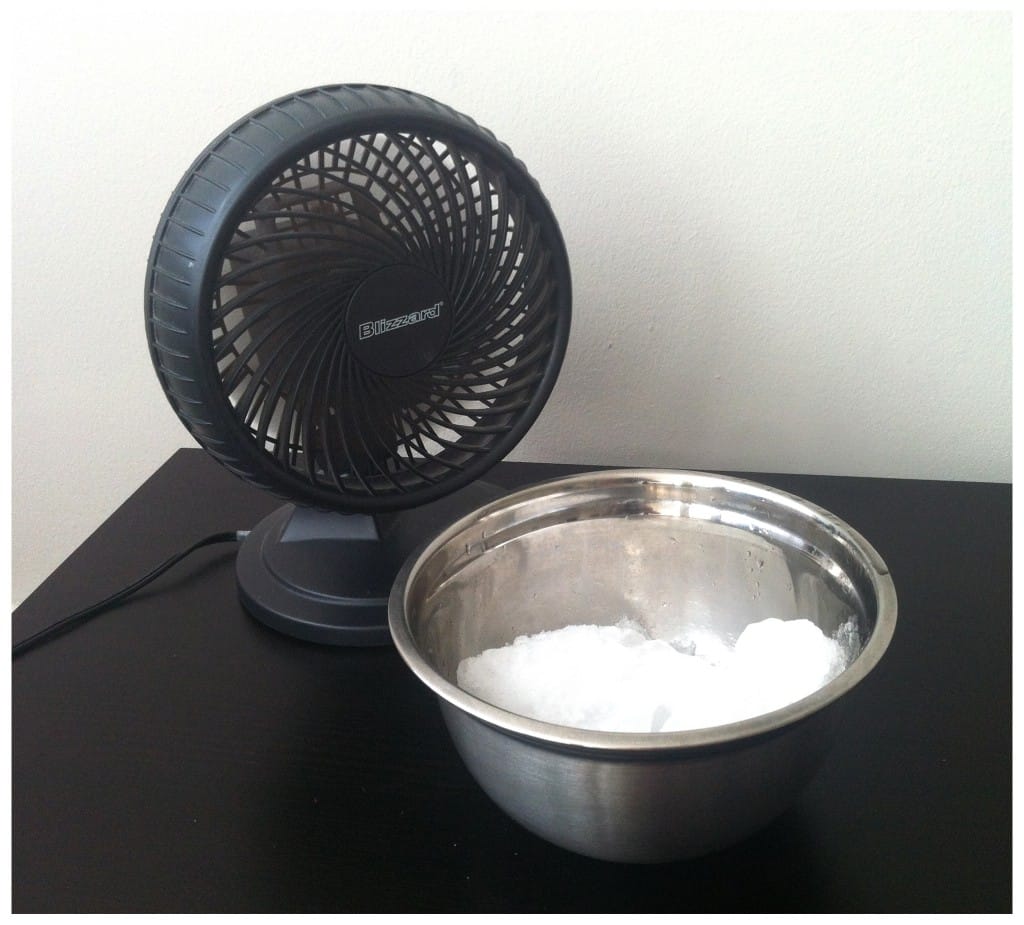
Set a bowl full of ice in front of a table fan. As the ice melts, the fan will blow cooler air toward you. Of course, you’ve got to be fairly close by to enjoy the benefits. Your best bet is to try this hack while you’re working at your desk, or place the fan-bowl combo near the stove on your kitchen counter while you’re cooking.
7. Scale Back on Appliance Use
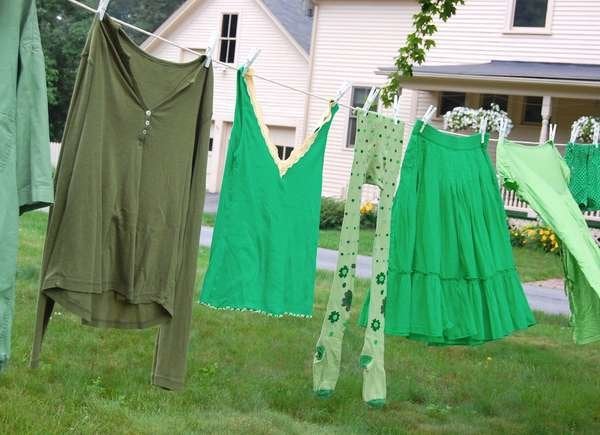
Home appliances, electronics, and even standard light bulbs heat up your house, so turn them on as little as possible. Run the washing machine only when you have a full load, and hang your wash on a clothesline. Skip the dishwasher if it’s not at capacity. Instead, wash dishes in the sink and let them air-dry. Steer clear of the oven and stove top, and opt for the microwave or grill instead. Keep even more heat out of the house by dining alfresco and taking your laptop onto the patio.
RELATED: Slash Your Electric Bill with 11 Savvy Hacks
8. Learn How to Cross Ventilate

Cross ventilation is all about regulating airflow. You may have no control over the location of the doors and windows in your home, but you can practice smart fan placement to propel air to your advantage. Place one large box fan in front of a window, blower side in, and another fan at the window on the opposite side of the space, blowing outward, to push away warm interior air. Set table fans in between, if necessary, to keep the cool air flowing.
RELATED: 21 Money-Saving Tricks That Every Homeowner Needs to Know
9. Keep Closed to Keep Cool
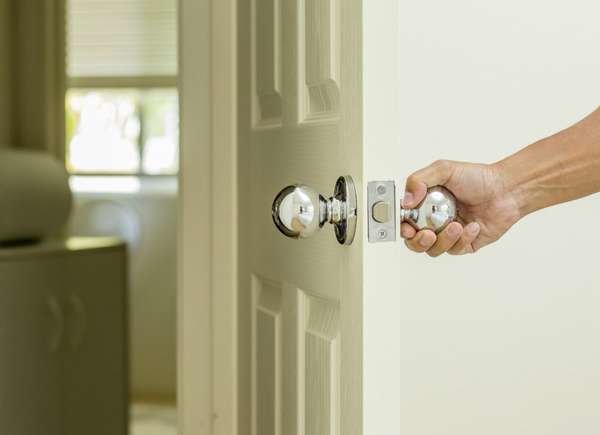
Nearly 30 percent of unwanted heat enters your house through windows (especially south- and west-facing ones), so keep them closed when you’re not home. Putting shades, curtains, blinds, and shutters to work can reduce indoor room temperatures by as much as 20 degrees. In rooms with a window unit or portable air conditioner, keep the door closed when the AC is running, and use doorstops to keep four-legged family members from poking their heads into closed-off territories.
RELATED: Why Is My Electric Bill So High?
10. Run Your Ceiling Fan Counterclockwise
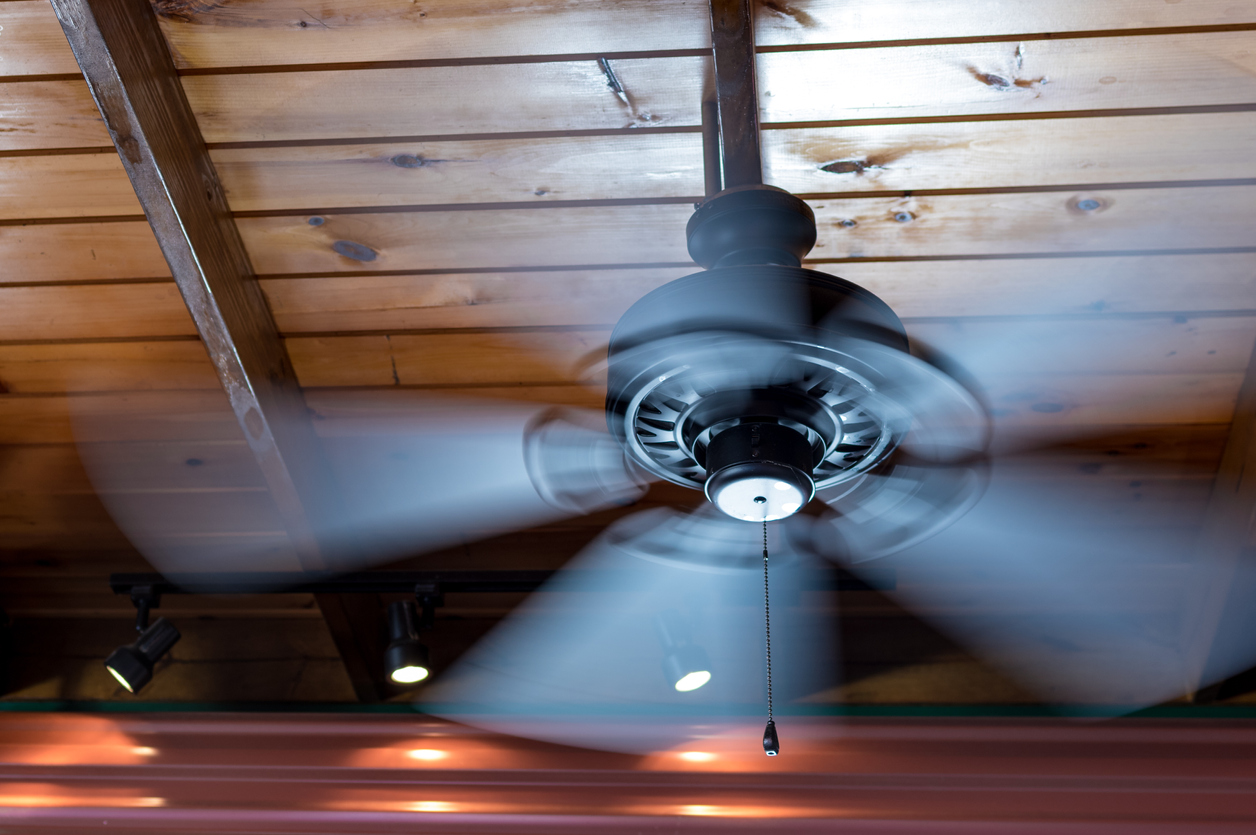
For optimal cooling during the summer, air should blow straight down rather than up toward the ceiling. Running your ceiling fan in a counterclockwise direction will do the trick. The airflow produced creates a wind-chill effect that makes you feel cooler. Be sure to adjust the fan speed as the weather heats up: The warmer the weather, the higher the speed. And remember that you can set your AC thermostat a little higher when you’re running ceiling fans.
RELATED: The Best Ceiling Fans to Keep Your Home Breezy Without Cranking the AC, Tested
11. Harness the Power of Double-Hung Windows

Double-hung windows were designed to help direct airflow through the home. If you open the bottom section of windows on the upwind side of your house (where air pressure is higher) and the upper section on the downwind side (where air pressure is lower), the low pressure will suck the air through your house, creating a pleasant—and cooling—breeze.
RELATED: 20 Ways to Make Your New House Look Old
12. Circulate Cooler Basement Air
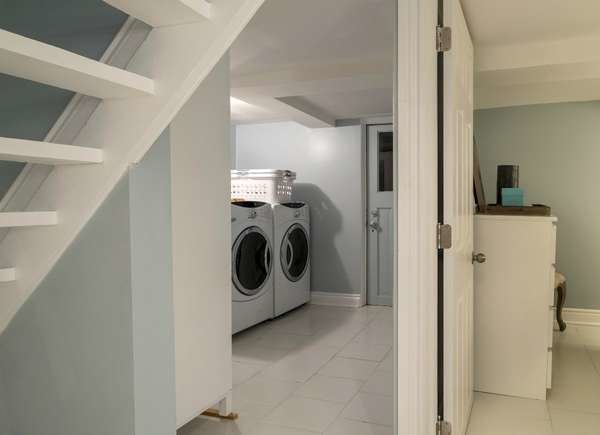
You can enjoy cool basement air in the upper stories of your house by the strategic placement of fans. Get started by shutting all windows except for one window on the top floor in the farthest possible south-facing corner. Position a box fan in the opened window, facing out. Next, open a window in the farthest north-facing corner of the basement. The open basement window allows cooler air in while the upper open window pulls warm air out. Don’t forget to keep the interior door to your basement open. To boost the effect, consider installing a ceiling fan near your basement entrance to promote circulation of basement air into the rest of the house.
RELATED: 10 Shortcuts to a Not-So-Scary Basement
13. Close the Curtains
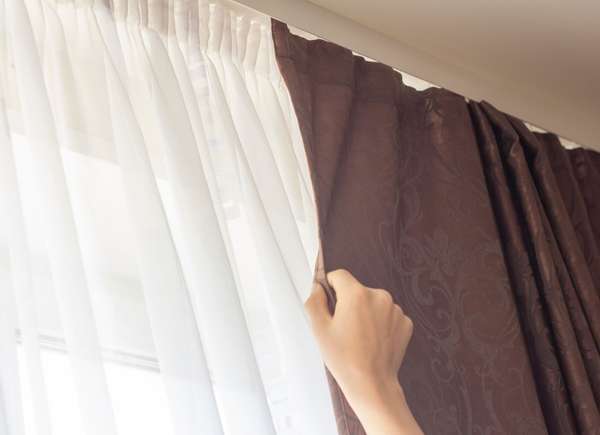
While you may be loath to block off the view of the beautiful outdoors, closing shades and curtains can really help keep the interior of your home cooler. Even double-paned, energy-efficient windows struggle when pitted against triple-digit temperatures; give them an assist by closing your window coverings to further block the heat from entering your space. Open the curtains back up in the evening so you can appreciate Mother Nature, and the cooler temps.
14. Make Some Menthol Tea

The organic compound menthol triggers protein sensory receptors in our mouths that make us feel cold. So foods that contain menthol, such as mint, tarragon, basil, and oregano, offer a cooling sensation. Oregano tea might not be particularly palatable, but a chilly glass of mint iced tea on a hot day can be quite tasty and refreshing. It’s the perfect accompaniment to an enjoyable afternoon on the back deck, watching the kids frolic in the yard. Garnish with a sprig of crushed tarragon for even more cool deliciousness.
RELATED: The 20 Most Beautiful—And Useful—Housewarming Gifts for Any Budget
15. Ice Those Veins

If you’re in need of an immediate cooldown, consider applying ice to pulse points on your body. Wrap an ice pack (or ice in a sandwich-size vv ) in a cloth, and hold the chilly compress against the backs of your knees, under your arms, or against the sides of your neck. You can even tie the cool bundles to your wrists.
